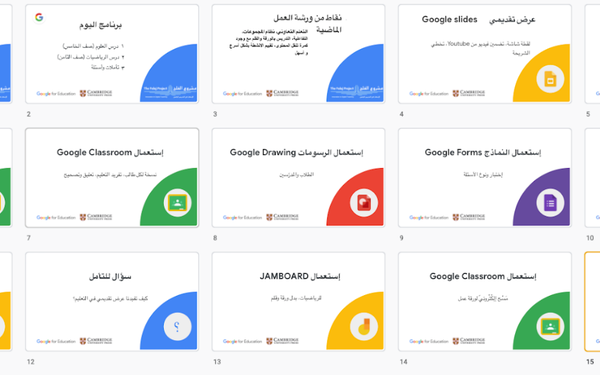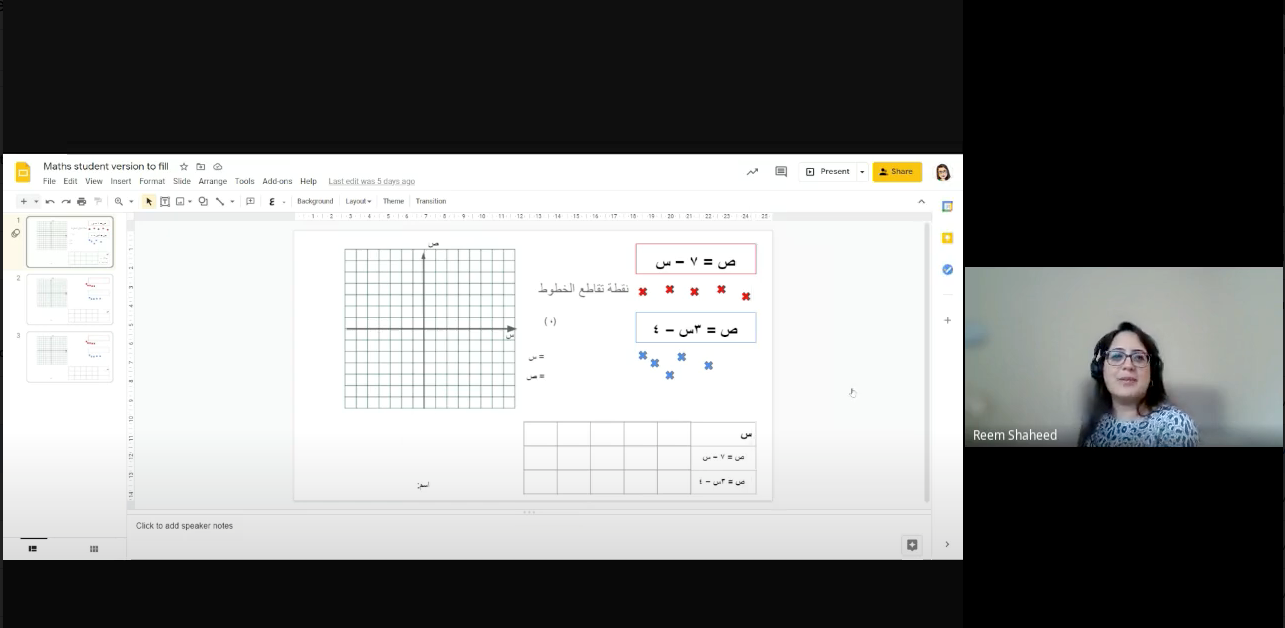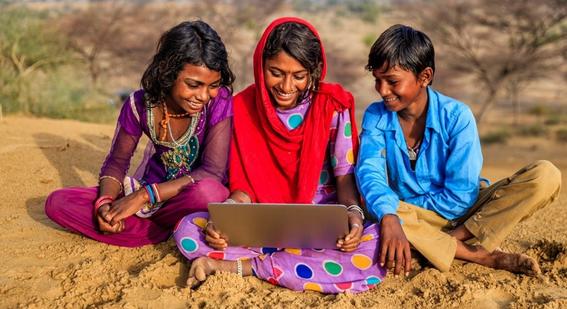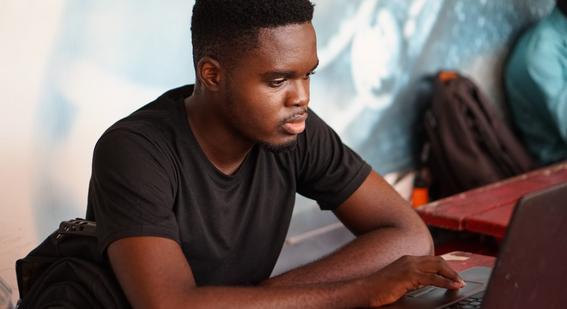How interactive content can save teachers time
The Falaj Project explores innovation in digital teaching. Google for Education, the Ministry of Education in Oman and the Cambridge Partnership for Education are collaborating to explore how Omani teachers can adapt their existing materials for use online.

When teachers plan online and hybrid learning, they face the challenge of developing their lesson resources beyond traditional worksheets and textbook pages to create an engaging environment for students. Teachers can save precious time through the availability of quality digital lesson content. In a recent study performed by Public First (2021), 72% of teachers preferred the use of premade physical, digital and online resources compared to having to make their own. Teachers found choice of resources be important, as they see themselves as content curators of their teaching materials and cherry-pick the most appropriate resources for each lesson and each student.
The Falaj Project explores innovation in digital teaching. Google for Education, the Ministry of Education in Oman and the Cambridge Partnership for Education are collaborating to explore how Omani teachers can adapt their existing materials for use online. One practical solution is to digitise Cambridge’s proven textbook content to create a structured and accessible asset bank for lesson-planning and -building strategies. The educators taking part in the Falaj Project workshops were excited about the support this would give them, and the resulting reduced planning time. One teacher stated “Teachers still have to look at the content, but this will definitely reduce time to half or less.” Another was pleased with how this approach could lead to a more student centered approach, with the interactive content well suited to the curriculum, stating, “inquiry based learning should be interactive”.
Teachers’ technology use requires training and support for users at every point on the spectrum and different teachers need different training and support at each stage of the process (Ellis-Thompson et al., 2020). The Falaj Project approach to lesson planning is flexible and will suit the needs of the individual teachers. One educator pointed out that making their own lessons from a database of digitised resources may prove to be a daunting, time-consuming task for some teachers. “For teachers who face technical challenges, this will take more time (probably much more).” For that reason, teachers will be provided with ready-made lessons in an editable format to save time and those teachers wanting to personalise lessons will also be supported and their workflow enhanced.

Ryan Irvan is a PhD student in Education at the University of Cambridge and is passionate about EdTech and designing online courses that promote dialogue and higher order thinking. He is experienced in facilitating collaborative projects between innovative technology and education and set up and ran a makerspace at a middle school in San Diego, California, where he taught Technology and English. He has an MA in Educational Leadership and Technology from San Diego State University and an MPhil in Education and Psychology from the University of Cambridge.
The Falaj Project has now completed and the final report can be read here.




